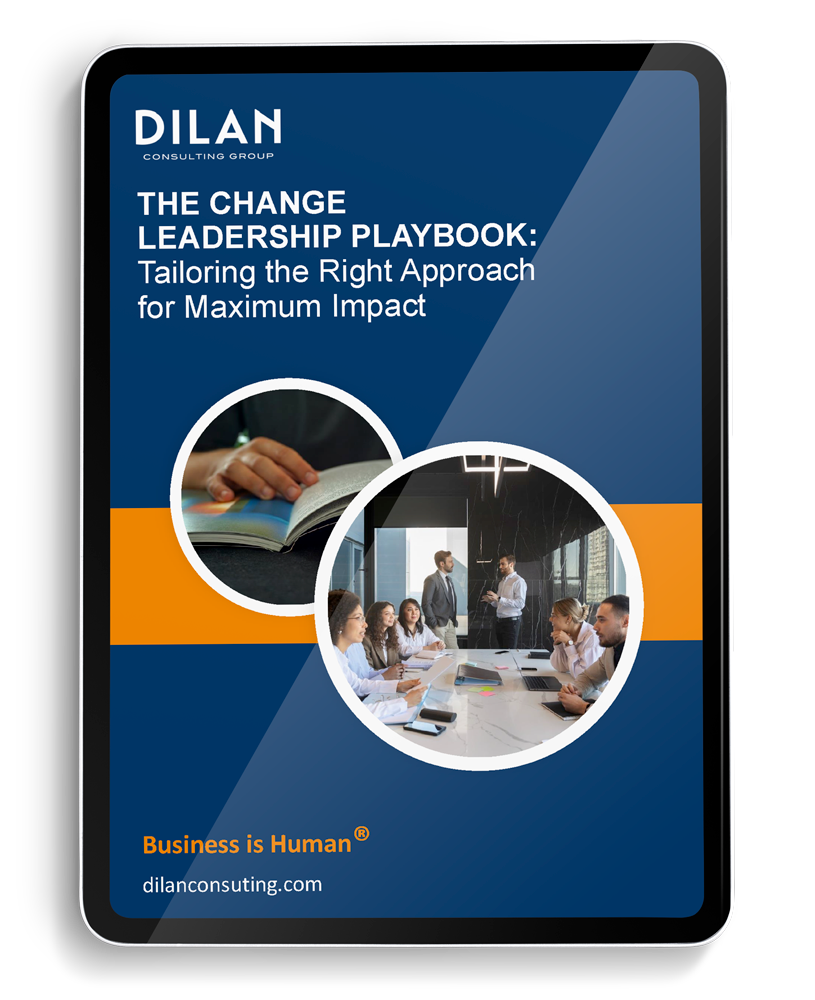In an increasingly complex and unpredictable world, the demands on leaders are more challenging than ever. Preparing your leaders for the future requires a multifaceted approach that integrates insights from leading experts and practical strategies. Here, we explore the essential skills and competencies for modern leadership and provide actionable steps to develop these qualities.
Emotional Intelligence: The Foundation of Effective Leadership
Vignette:
Maria, a senior manager at a tech company, noticed that her team was struggling with stress and low morale. By participating in an emotional intelligence workshop, she learned techniques for better self-regulation and empathy. Implementing these skills, Maria created a more supportive environment, significantly improving team performance and engagement.
Actionable Ideas:
- Workshops and Training: Regularly offer workshops on emotional intelligence to help leaders develop self-awareness, self-regulation, empathy, and social skills (Goleman, 1995).
- 360-Degree Feedback: Implement 360-degree feedback systems to provide leaders with insights into their emotional impact on others. Both qualitative and/or quantitative approaches can be powerful tools.
Adaptability: Navigating Uncertainty with Agility
Vignette:
John, a marketing director, faced a sudden market shift due to a global event. Thanks to his company’s focus on adaptability training, he quickly reassessed strategies and led his team through a successful pivot, maintaining market presence and customer trust.
Actionable Ideas:
- Continuous Learning Programs: Encourage a culture of continuous learning to keep leaders flexible and open-minded (Gallup, 2020).
- Scenario Planning Exercises: Regularly conduct scenario planning exercises to help leaders anticipate and prepare for various future challenges.
Inclusive Leadership: Fostering Diversity and Equity
Vignette:
When Jessica took over as the head of her department, she realized that diversity was not reflected in leadership. She championed inclusive leadership practices, implemented diversity training, and established mentorship programs. This not only improved team diversity but also enhanced creativity and decision-making.
Actionable Ideas:
- Diversity Training: Provide comprehensive training on diversity, equity, and inclusion to build cultural competence among leaders.
- Mentorship Programs: Create mentorship and sponsorship programs to support underrepresented groups and promote inclusivity.
Strategic Thinking: Visionary Leadership
Vignette:
During a critical growth phase, Michael’s company needed clear strategic direction. Through strategic thinking workshops and cross-functional team projects, Michael developed the foresight and analytical skills necessary to guide his company toward sustainable growth.
Actionable Ideas:
- Strategy Development Workshops: Conduct regular strategy development workshops to hone leaders’ vision and foresight.
- Cross-functional Teams: Encourage participation in cross-functional teams to broaden leaders’ perspectives and strategic thinking abilities.
Coaching and Development: Empowering Others
Vignette:
Emma, a new team lead, found that her team was underperforming. After undergoing executive coaching, she shifted her approach to empower her team members, significantly boosting their performance and morale.
Actionable Ideas:
- Coaching Programs: Implement training programs focused on developing coaching skills and empowering others.
- Ongoing Support: Provide continuous leadership coaching to support leaders in their development journey.
Purpose-Driven Leadership: Leading with Vision and Values
Vignette:
When Rachel became CEO, she wanted to reinvigorate her company’s mission. By participating in workshops on purpose-driven leadership, she clarified and communicated the organization’s purpose, aligning it with daily operations and inspiring her team to higher performance.
Actionable Ideas:
- Purpose Workshops: Conduct workshops to help leaders find and articulate their organizational purpose.
- Values Alignment: Ensure that organizational values are reflected in everyday leadership practices.
Team Cohesion: Building Trust and Collaboration
Vignette:
Facing high turnover, Liam knew his team needed better cohesion. Through team-building activities and conflict management training, he fostered a collaborative environment where trust and mutual respect thrived, reducing turnover and increasing productivity.
Actionable Ideas:
- Team-Building Activities: Organize regular team-building exercises to strengthen trust and collaboration (Lencioni, 2002).
- Conflict Management Training: Provide training on effective conflict resolution techniques to maintain a harmonious team environment.
Data-Driven Decision Making: Leveraging Technology and Analytics
Vignette:
Sophie’s company faced data overload without actionable insights. After leaders received training in data analytics, they could interpret data more effectively and integrate advanced analytics tools into their decision-making processes, driving better business outcomes.
Actionable Ideas:
- Analytics Training: Offer training programs on data analytics and interpretation to build leaders’ data literacy.
- Technology Integration: Encourage the use of advanced analytics tools in decision-making processes.
Conclusion
Preparing leaders for the future requires a strategic, multifaceted approach that builds on emotional intelligence, adaptability, inclusive leadership, strategic thinking, coaching, purpose-driven leadership, team cohesion, and data-driven decision making. By implementing these actionable ideas, CHROs and CEOs can cultivate leaders who are ready to navigate the complexities of the modern business world and drive their organizations toward success.
For more insights and customized leadership development programs, visit DILAN Consulting Group or call us at 415.937.0621.




